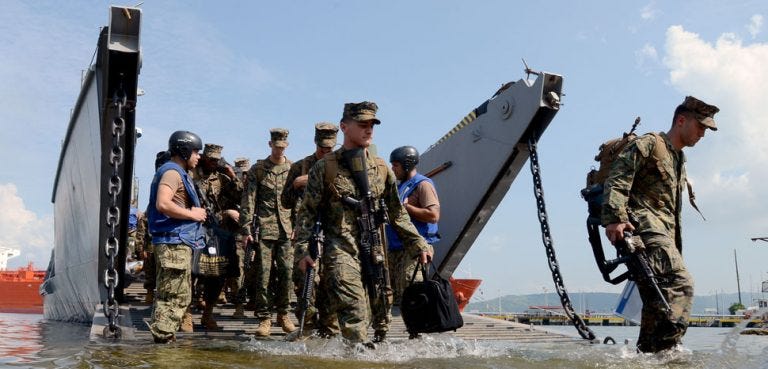Duterte Yields to Reality on US Forces Pact
Military was deeply uneasy about decision to void the agreement in face of Chinese aggression

Philippine President Rodrigo Duterte's June 1 decision not to end the Visiting Forces Agreement that governs the actions of US troops on Philippine soil amounts to a recognition that the country’s military was deeply uneasy about the decision to void the agreement, announced on February 11 by Duterte in a fit of pique over the cancellation of a US visa …
Keep reading with a 7-day free trial
Subscribe to Asia Sentinel to keep reading this post and get 7 days of free access to the full post archives.
